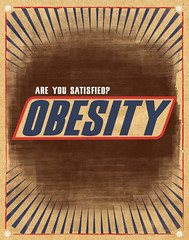Recently there was a tragic bus crash here on the East Coast. A tour bus taking a bunch of tourists from the casinos of Atlantic City, N.J. to New York City went through a guardrail and crashed into a signpost. Fifteen people died as a result, a great tragedy.
But the coverage from the New York Times leaves a lot to be desired. Rather than simply report the news, they turn a seemingly isolated incident into a call for more regulation. It’s sad that those people died in the crash, but one crash shouldn’t be enough to prompt an expansion of government, particularly at the federal level. It seems that some people believe that with enough regulation, we can live in a world of perfect safety without any drawbacks.
But sadly, that’s not the case. And in the absence of that, we should make reasonable judgments about risk management rather than simply seeing every possible risk as unacceptable. For example, what would have been helpful in this article would have been a statistic like the number of passenger deaths per million miles traveled on these buses, or something similar that compares that mode of travel with people getting places in their own cars or on airplanes. Without that sort of information, it’s impossible to know what sort of reaction is warranted.
But it didn’t help that the piece was laced with opinion and bias. For example: “Prospective drivers must only obtain a commercial driver’s license, issued at the state level — essentially granting bus companies the freedom to hire whomever they choose.” What’s wrong with that? It’s hard to get a CDL, it’s not like they give them out as the toy surprise in boxes of Cracker Jacks. And they say that companies can hire whomever they choose like it’s a bad thing. Who better to choose the drivers than the companies that are assuming the liability? Would the New York Times prefer that bus driver jobs be awarded by lottery instead? Or perhaps be assigned by the Department of Bus Driver Job Allocation?
I also wasn’t impressed with this: “The driver of the bus that crashed, Ophadell Williams, was arrested in 2003 for driving with a suspended license and served two years in prison for manslaughter stemming from a 1990 episode in which a man was killed during an argument.” What’s the point of including this? Are they suggesting that anyone who’s ever done time should be forever unemployable afterward? That he’d once had a suspended license would seem to be more relevant, except that driver’s licenses can be suspended for all sorts of irrelevant non-vehicular reasons nowadays, like failure to pay child support, so even that isn’t sufficiently informative. Without more information about what Williams’s criminal record has to do with his ability to drive a bus, this comes across simply as trying to paint him as a villain.
Basically, this article could have been better if there had been fewer opinions and more facts. But commentary doesn’t require any of that tedious research, and being less expensive to produce, I suppose that’s all we can expect now in the twilight of journalism.








